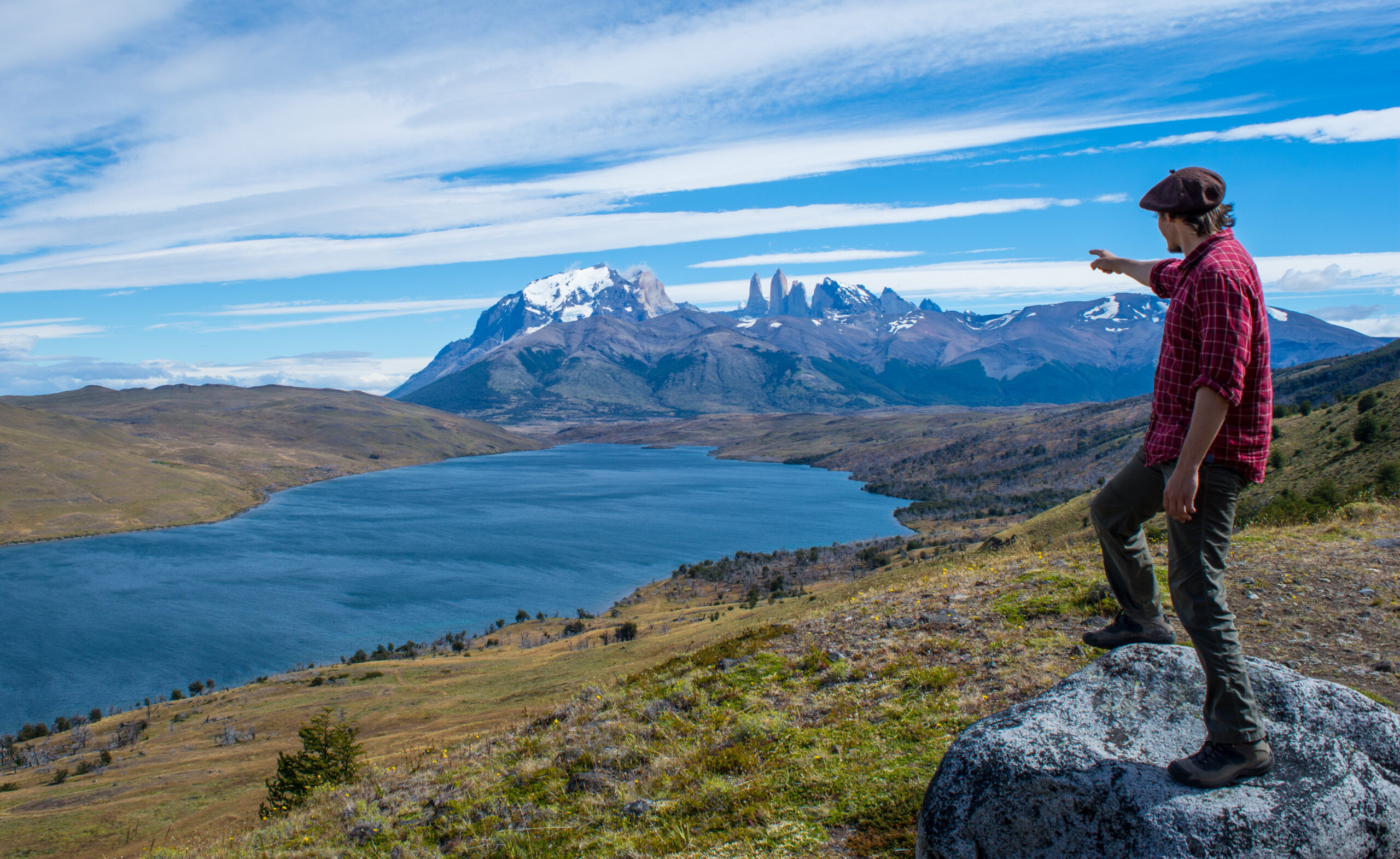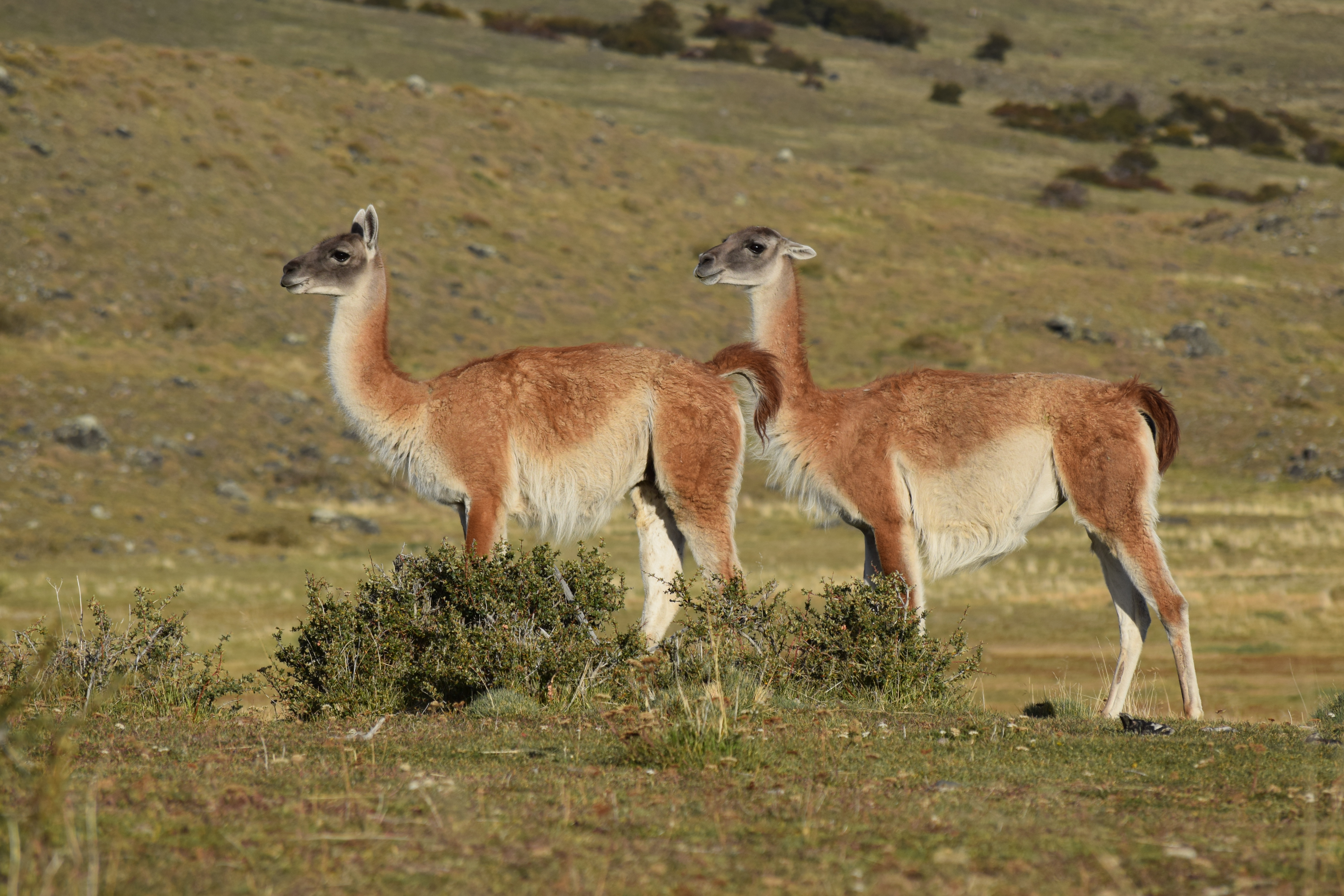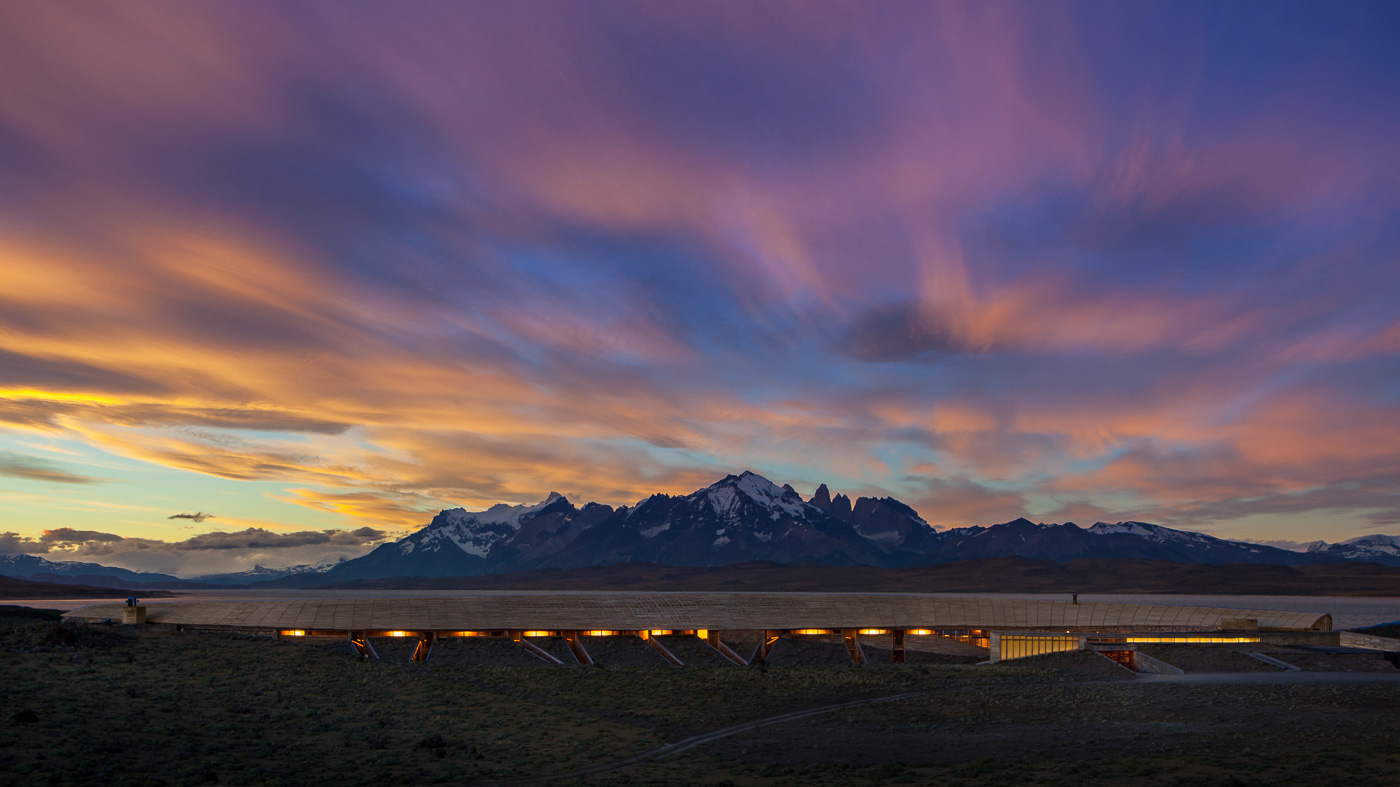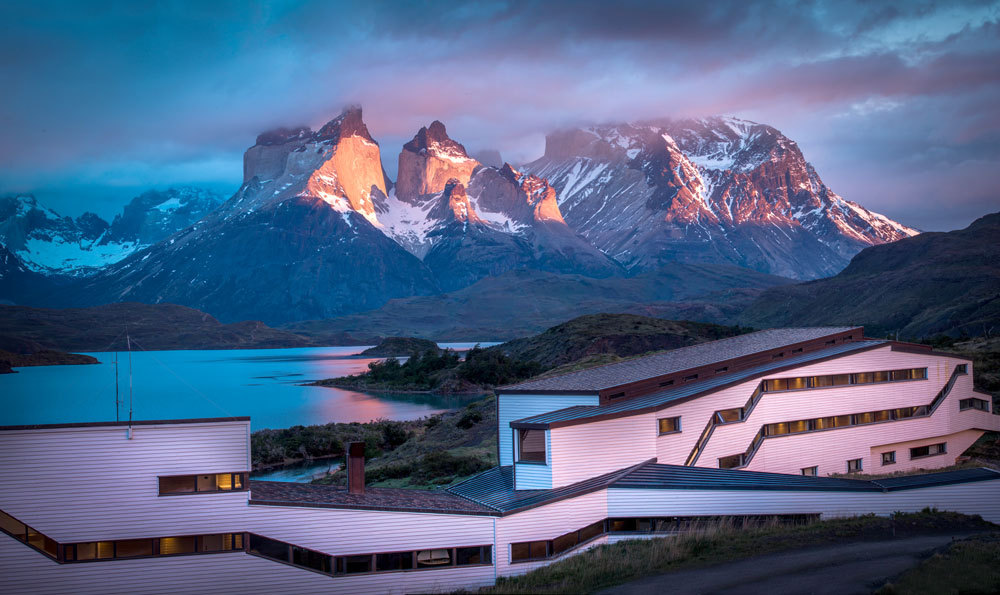TORRES DEL PAINE LIVE WEATHER FEED
Today & Five-Day Forecast (C°)
Torres del Paine National Park
Month – Day
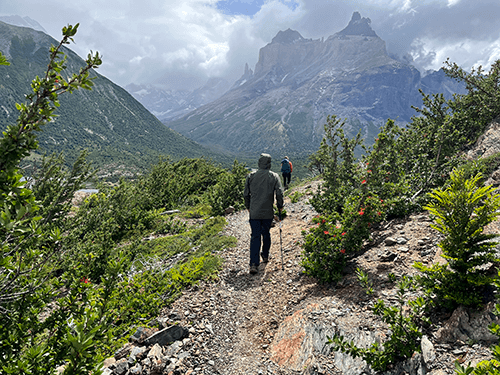
More Information on Torres del Paine
For more information, please follow the links to our Torres del Paine Information Page: Torres del Paine Information
How do I get to Torres del Paine?
When is the time to visit Torres del Paine?
What are the trekking trails in Torres del Paine?
How do I book Torres del Paine Accommodation and Itineraries?
What are the entry costs into Torres del Paine?
Torres del Paine Patagonia National Park – What is It?
Torres del Paine is a National Park, located in the heart of Patagonia, in Southern Chile, encompassing a natural wilderness area of 181,414 hectares. However, its geological formations are estimated to date back some 12 million years. It was 13 May 1959 when it was designated a National Park by the Chilean government, later given the distinction of being a UNESCO Man and Biosphere Program (MAB) Reserve in 1978. Today, it is administered by the Chilean government body Corporacion Nacional Forestal (CONAF)
Why is Torres del Paine “So Special”?
A short answer to the above question is that, visually, the central attraction of the park is so jaw-droppingly stunning, and unique, that people come from all over the world to see it “up close”. The main, central massif, comprising the giant “horns” (“cuernos of Paine”) and the almost vertically-sided three, “needle” spires create a spectacle together that is not only dramatic in its form, but raises the question: “how was it formed”.
Ice and More Ice
However, considering that the massive Southern Ice Sheet with a surface area amounting to 13,500km2 – which is the third largest area of ice on Earth following Greenland and Antarctica. This still covers the Andes Mountains, and borders the park. Therefore, it is not hard to imagine a time when this same ice sheet covered not only Torres del Paine, but the entire southern part of South America, linking up to Antarctica itself. Just like the humongous ice sheets covering the northern hemisphere, with glaciers measuring kilometres in height, as they slowly moved down hill, they naturally carved out the softer rock that lay in between the harder rock. This process, which took millennia (and maybe longer) to complete, left behind a sculpture so grand in scale, and so beautiful, which we identify today as Torres del Paine.
Then, as glaciers reduced in size and disappeared, they left behind numerous lakes, lagoons, waterfalls, rivers, hills and valleys. And, within these valleys are the remnants of the prehistoric glaciers that we call hanging glaciers, high up in the mountains in the Massif. Yet, in the western side of Torres del Paine there is still a massive glacier, by today’s standards, and this is called Glacier Grey, moving down from the Southern Ice Sheet.
Wild Animals
Amid the spectacle of geographical, raw nature, the park is a haven for many types of wild animal and sub-Antarctic flora that together form seventeen ecosystems. Among the wild animals that can be spotted are Fox, Guanaco, Swan, Condor, Ducks, Flamingo, Rhea (small ostrich) and the Puma.
Activities in Torres del Paine
Torres del Paine is known, world-wide, for two, iconic hiking trails. These are called the W Trek and the Circuit Trek. More information about these is below and in this web site. However, other activities include: Kayaking, Hike Hiking, Horseback Riding and Fly Fishing
Getting to Torres del Paine
The easiest entry point to Torres del Paine is via the small village of Puerto Natales with direct flights from Santiago. However, access is also possible by coming overland from El Calafate in Argentina, or by a 5hrs drive from Punta Arenas in Chile. Punta Arenas is also served by direct flights form Santiago. Note that to get to El Calafate there are flights from Buenos Aires as well as from Ushuaia.
Here we are: request@experiencechile.org
What are the Main Torres del Paine Attractions?
In addition to the stunning, geographic scenery in and around the Torres del Paine National Park, there are also some fabulous activities to enjoy.
Glacier Grey
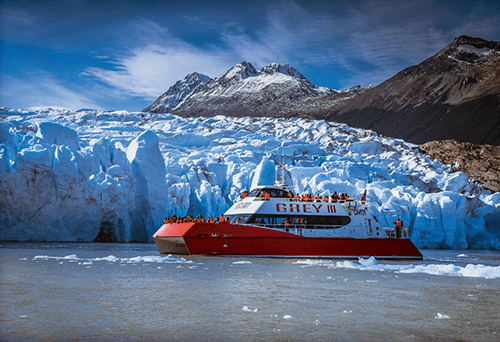
Grey Glacier
These range from walking on top of Glacier Grey (ice hiking), to paddling a kayak on Grey Lake and in front of the glacier, to taking a trip on a boat that then navigates Grey Lake and passes in front of the Glacier.
Fast Speed Zodiac
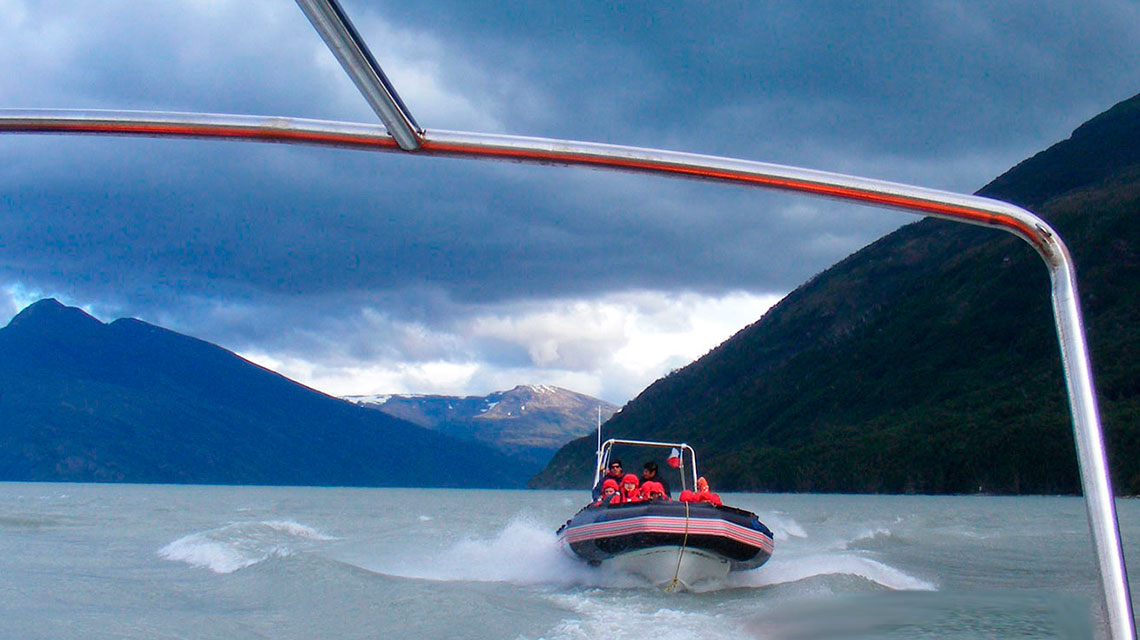
Fast Speed Zodiac
Also, there is the option to ride a fast-speed zodiac up or down the Serrano River in order to get into, or out of Torres del Paine from Puerto Natales.
W & Circuit Hiking

Hiking the W & Circuit Treks
Naturally, there is also the hiking on the iconic W Trek and Circuit Trek trails as well as horse riding.
Sightseeing
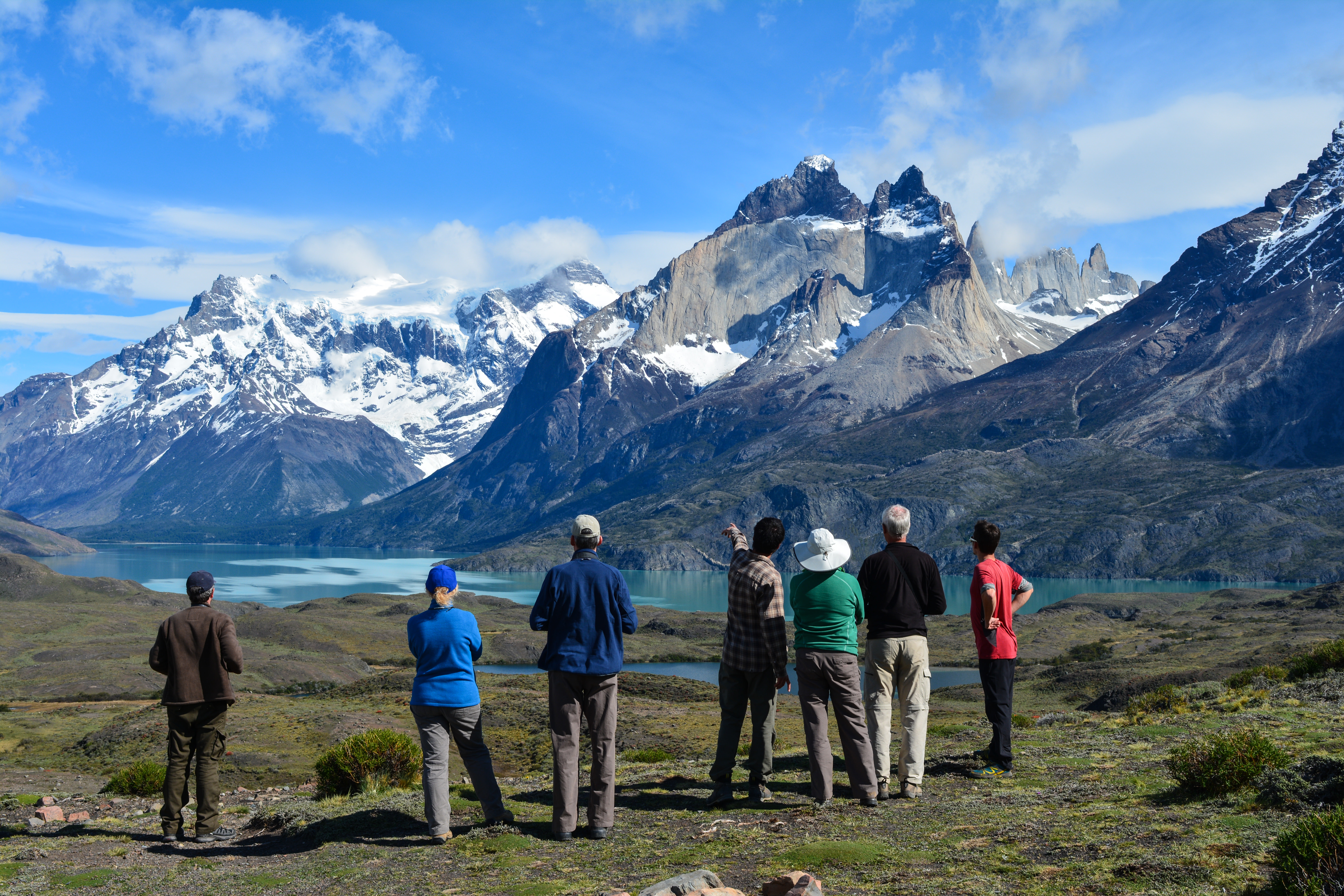
Sightseeing
For those who are not into the activities there are options to be transported around the park and see the major, stunning views.
Wildlife Safaris
Wildlife Safaris Including Puma
Torres del Paine is full of natural, wild, fauna, including the Puma and Condor. During Wildlife Safari you will be able to see many varities of wildlife. In particular, if you book a Puma Tracking excursion, which means an early 4am start, you may be able to witness Puma’s in their natural environment.
Torres del Paine Trekking
The W Trek and the Circuit Trek
What is the difference between the two?
The Torres del Paine W Trek trail, names so because the path it takes, when viewed upon from above is in the shape of a “W”. And, each side of the “W” depicts, on the left side, the Grey Valley, and on the right side, the Ascensio Valley, the end of which is the Torres Base. The two middle lines represent the middle French Valley. This trek can be completed in 3 nights as an Express trek, or 4 nights to cover the three valleys in full. Explore the W Trek map here to find out more.
On the other hand, the Circuit trek trail takes in 3 nights passing through the less hiked back country behind the Torres del Massif and then links up with the W Trek at Grey. To complete the Circuit trek, you need 7 nights, and it is also essential to have a night at Grey.
W Trek Torres Base

W Trek French Valley

W Trek Grey Lookout

W Trek Glacier Grey
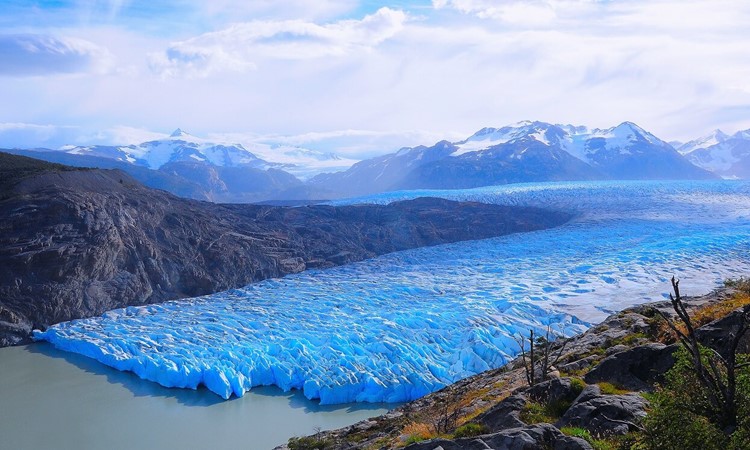
Circuit Trek Seron
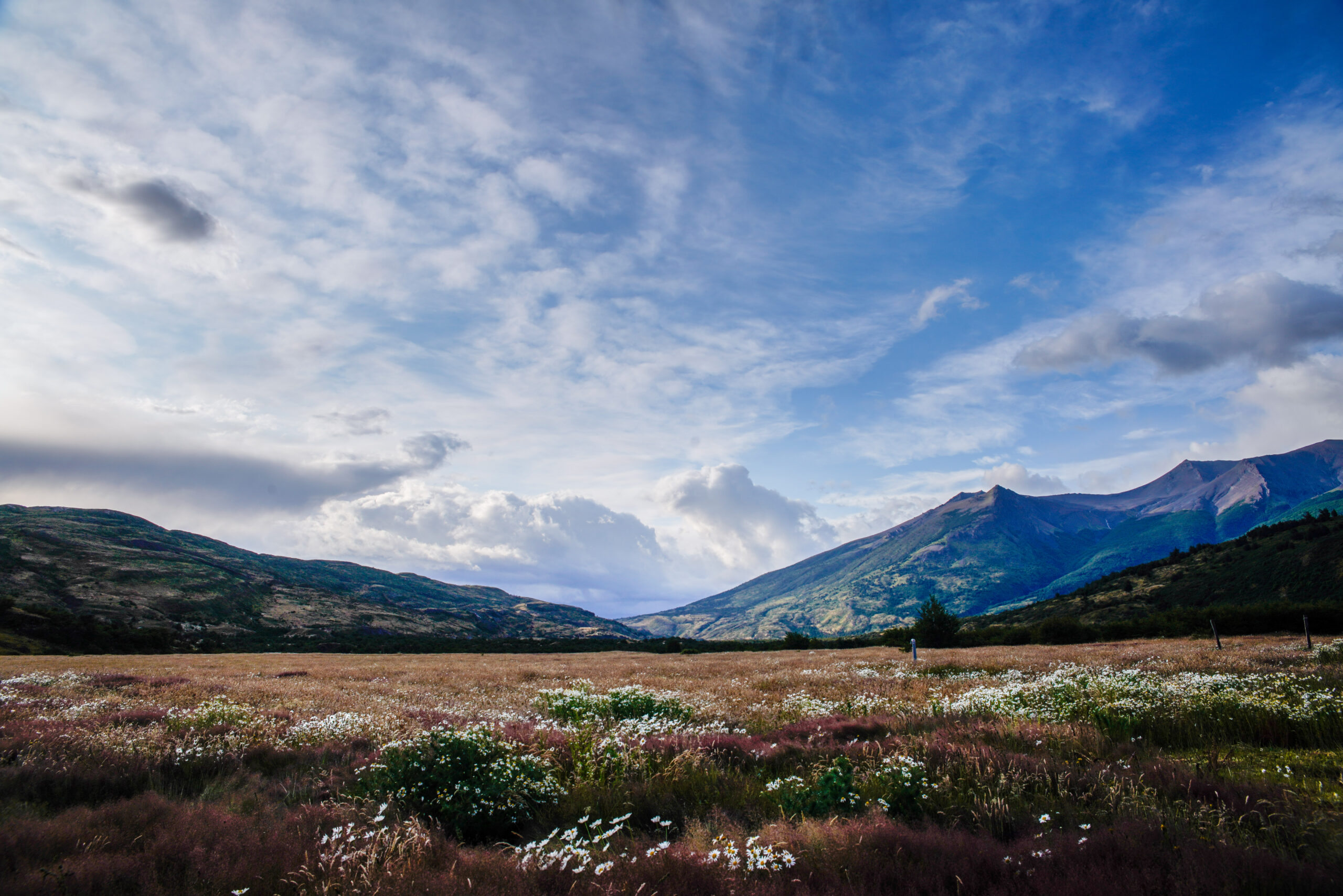
Circuit Trek Dickson

Circuit Trek Perros

Circuit Trek After John Garner

Torres del Paine Activites Around Grey Glacier
Kayak, Ice Hike and Sightseeing Navigation
The glacier is located in the north-western sector of Torres del Paine, coming down from the vast Patagonian Southern Ice Shelf to meet Grey Lake, which has been formed from glacial ice melt. In addition, the lake is where there are icebergs that break from the glacier and float the length of the lake towards Grey River. Apart from the amazing sight of the glacier, there are also the options below whereby you can enjoy the spectacle even more than just seeing it.
Kayak Grey
Kayak Grey
From a location close to where Refugio and Camping Grey is located, there is the option, with advance reservation, to do kayak on Grey lake, among icebergs and close to the glacier. However, in order to enjoy this activity, you will need a previous night booked at either the refugio or camping.
Ice Hike Grey
Ice Hike Grey
For those who are need of more exhilaration and physical activity there is the option to either add to the Kayak or choose instead of the kayak, an ice hike on top of the Glacier Grey. Also, as with the kayak, this activity requires a previous night at either the refugio of camping Grey, and departs from an area close to this accommodation unit.
Navigation Grey
Navigation Grey
If you are unable, or plain just do not want to do the Kayak or ice hike, there is also a catamaran boat that operates both as a ferry connection between Hotel Grey and Refugio / Camping Grey in both directions, as well as offering a pass by the face of the Glacier. This excursion is also operated as a return trip, so you can depart and come back to Hotel Grey.
Torres del Paine Patagonia Full Day Excursions
From Puerto Natales or from Within Torres del Paine
Our full day excursions involve PRIVATE transfers, which means that the transport is purely for you and your party. We will pick you up from your hotel, be it in Puerto Natales or in Torres del Paine and then take you around the park, or to a particular place and, at the end of the day take you back to your hotel. The usual Full Day options are detailed below:
Torres del Paine Main Viewpoints
This will be a general sightseeing trip around Torres del Paine National Park to see the main, jaw-dropping scenic views. As it is a full day there will be a lunch stop, but the cost of lunch will not be included in the cost of the full day. Typical places for a stop off are Salto Grande, Mirador Cuernos, Mirador Condor, Serrano Lookout, Lagna Amarga, Cascada Paine, Navigation Grey return trip, Torres Base hike, French Valley hike, Grey hike among others.
Hiking
Note that you CAN do one of the W Trek valleys in a day. This means that you can be in the comfort of a nice hotel, either in the park or at Puerto Natales, and we will transport you to the trail head for the valley you wish to trek each day. Once you return from the trek, we will take you back to the comfort of your hotel.
Send Your Enquiry to here: request@experiencechile.org
Where to Sleep in Torres del Paine
Within Torres del Paine, as well as on the periphery, there are numerous accommodation options. For example, these range from simple hostels (called refugios, which are on the W Trek and Circuit Trek trails), to Glamping (luxury camping), mid-rage hotels to top end luxury lodges. In addition, there is the village of Puerto Natales,
Please click through from the links below to be led directly to all the accommodation details and descriptions you will need.
Luxury Torres del Paine Lodges
These lodges offer all-inclusive itinerary stays and Experience Chile will include options for offers if you get in touch.
Torres del Paine with Antarctica?
Fantastic Antarctica with Torres del Paine Combo
In the event that you want to take the opportunity to also see Antarctica when you are in Patagonia, Experience Chile will offer you an attractive discount on the combined, overall cost, or other free services. Our offer is in addition to any other combo discount already being offered by any other company. For example, there is a hotel currently offering a combination offer with one of the Antarctica suppliers, so we will add to THAT offer as well if we handle your reservations with both of these suppliers.
You have nothing to lose, but a lot to gain. ASK US FIRST if you intend to do a Torres del Paine with Antarctica trip!
Send Your Enquiry to here: request@experiencechile.org
Refugios – Hotels – Puerto Natales
Puerto Natales: Patagonia
(Closest village to Torres del Paine)
Alternative to Torres del Paine
Many of the hotels in Torres del Paine become crowded during the high season. Consequently, they increase their room rates, some to silly levels. However, Puerto Natales as the closest city south of Torres Del Paine National Park, is the ideal alternative place to stay. In other words, Natales is an ideal location to start and finish your adventure.
Advantage to Puerto Natales
Apart from, mostly, hotel room rates costing less than inside Torres del Paine, if you stay in a real village such as Puerto Natales there is “life”. For example, you have a choice of restaurants to eat out at each night; there are bars to meet people at and have a chat with, as well as some quirky art galleries and boutique shops. Moreover, the travelling time from Puerto Natales to Torres del Paine trail heads can be the same as the travel time from some of the hotels closer to Torres del Paine to places of interest and trail heads in the Park.
As a result, Puerto Natales has become a major hub for hikers from around the globe. Therefore, Puerto Natales is the perfect place to meet like-minded people setting off on the W Trek, or over to El Calafate and El Chalten, or even heading as far south as Antarctica.
Because many of our guests choose to at least spend one night in Puerto Natales, we feature some of the most popular hotels in the area so you can continue to tailor your stay even further.
Other Useful Links
What ExperienceChile.Org says about
Torres del Paine Patagonia
Torres del Paine Patagonia is one of the most amazing and incredible natural, geographical sights on Earth. Most important is that visitors can walk (hike) amid stunning scenery in the middle of the National Park, as well as participate in light, active adventures. For example, ice hiking, kayaking and enjoying a boat trip that passes in front of a glacier. In addition, there are superb, luxury World-Class lodges that offer the maximum of high-end comfort and experiences.
Experience Chile has been arranging custom W Trek and other itineraries in and around Torres del Paine Patagonia since 1996. We are an English owned and managed, receptive travel operator, based in Chile. Most important, we are we are outright specialists in this destination.
If you want the best in the business to handle your personal itinerary, please get in touch.
Send Your Enquiry to here: request@experiencechile.org
Please Send Us Your Enquiry
For the best service please supply us with as much information as you can. For example, where you want to go, what you want to do, what you want to experience and how much money you want to spend (or do not want to spend!). How many people, what type of beds (matrimonial, twin, single etc.)
VIP
In the event that you are a VIP in any of the fields such as celebrity and/or political and/or business, and you need “special attention”. For example, privacy and/or security for your trip please use an alias in the enquiry but mention that you are VIP and one of the directors will handle your request and keep your real name and details confidential.
OFFER
Ask us to handle ALL of your South America, or Chile trip and we WILL include some items for free or at special lower-than-public rates. How much we can offer you depends on how much we can arrange and book for you. REQUEST@EXPERIENCECHILE.ORG
Remember, our specialty is to create a travel itinerary custom-built to your needs.












